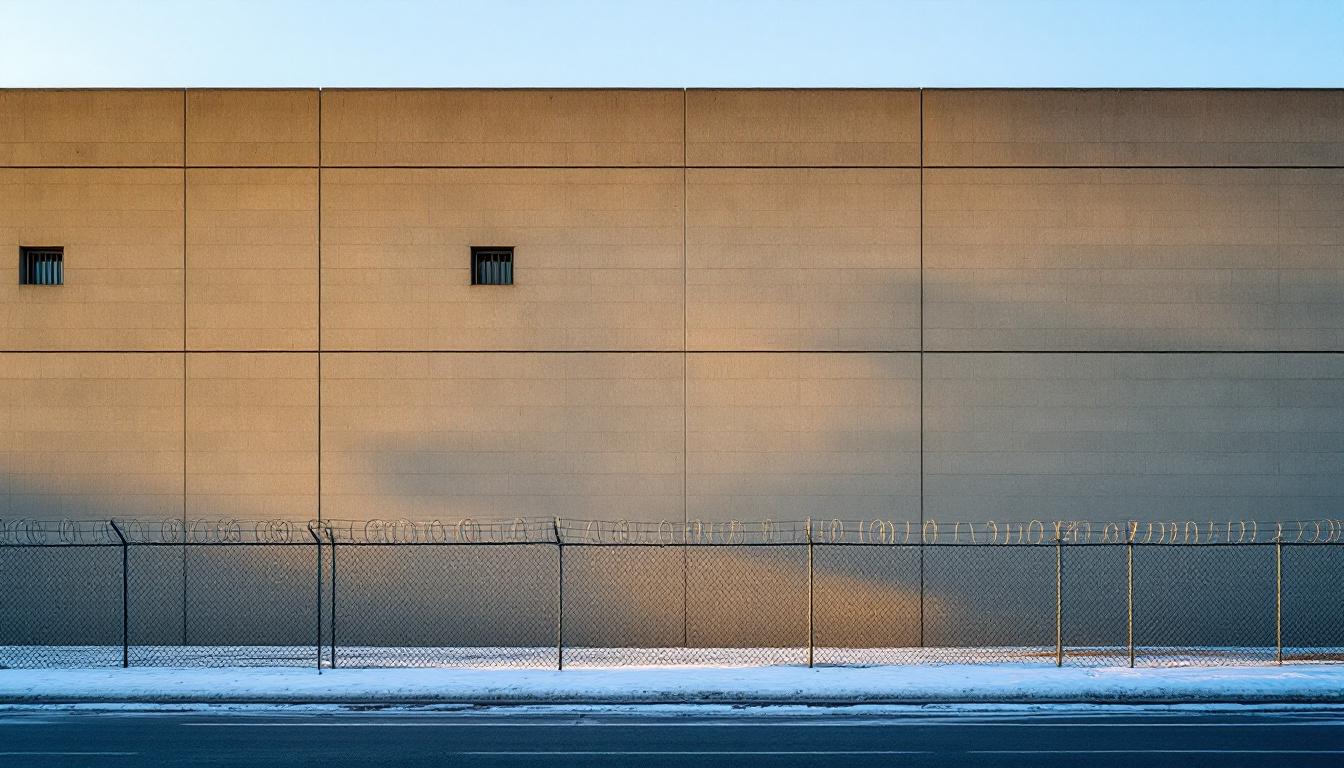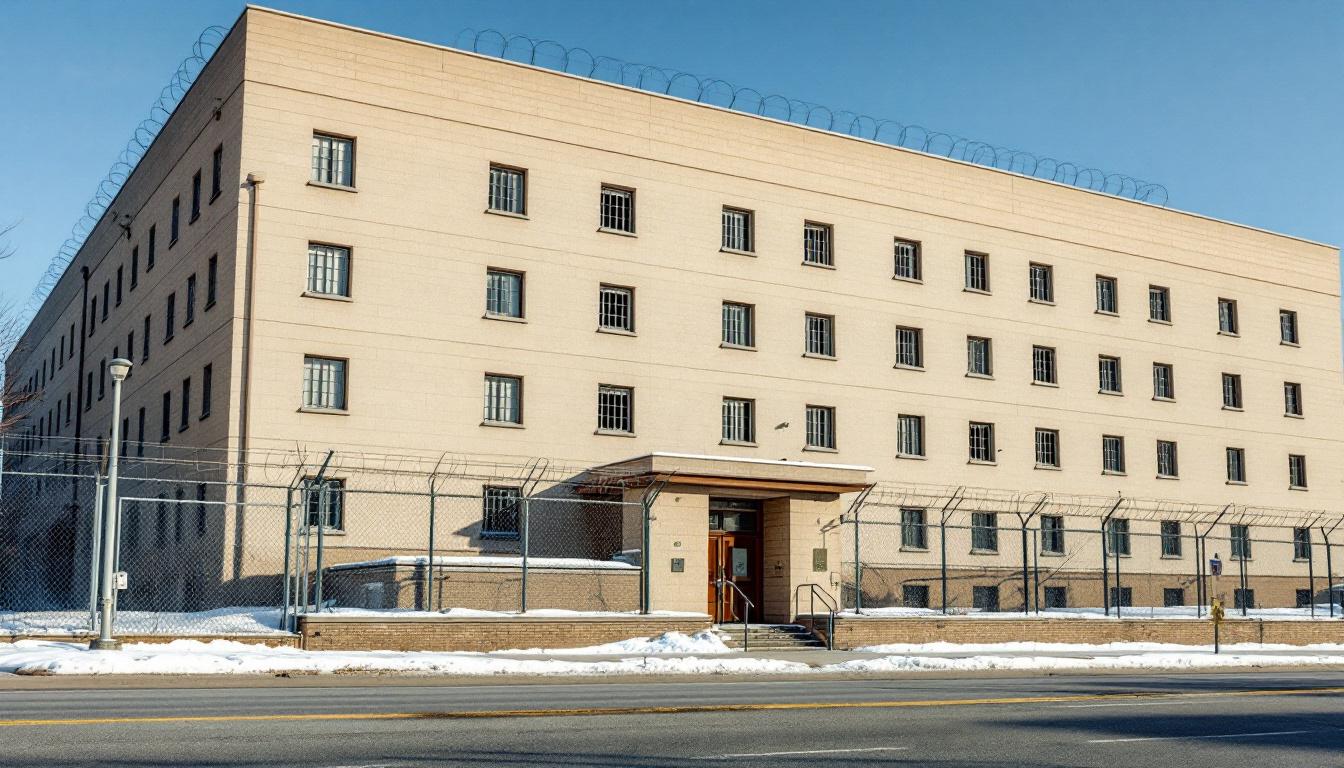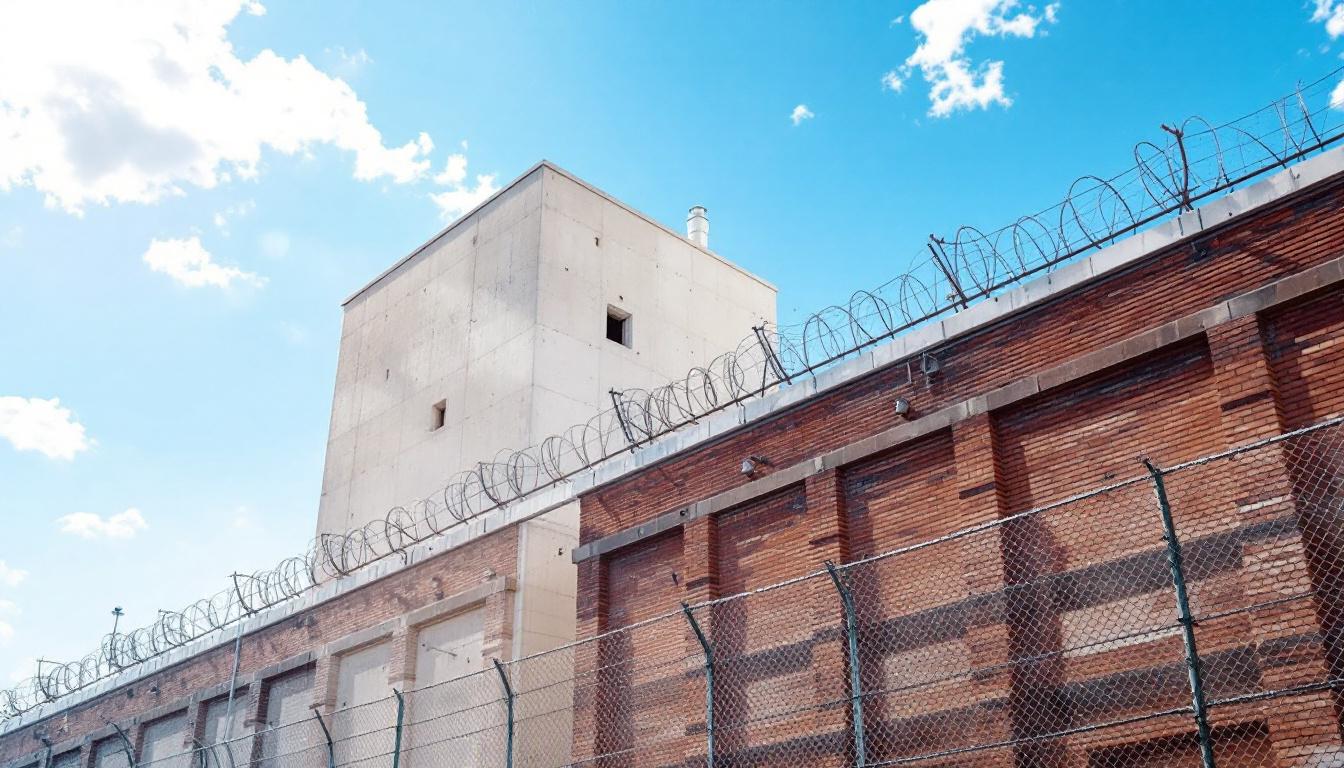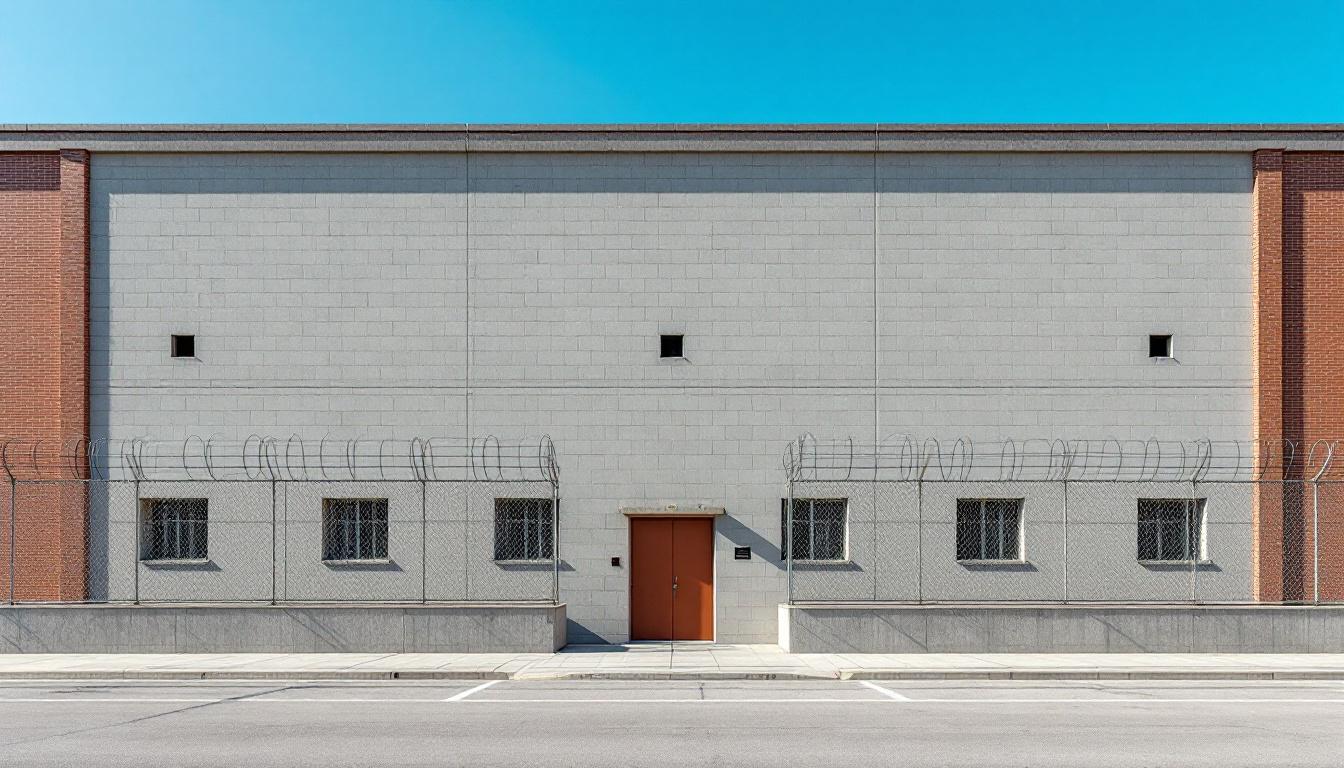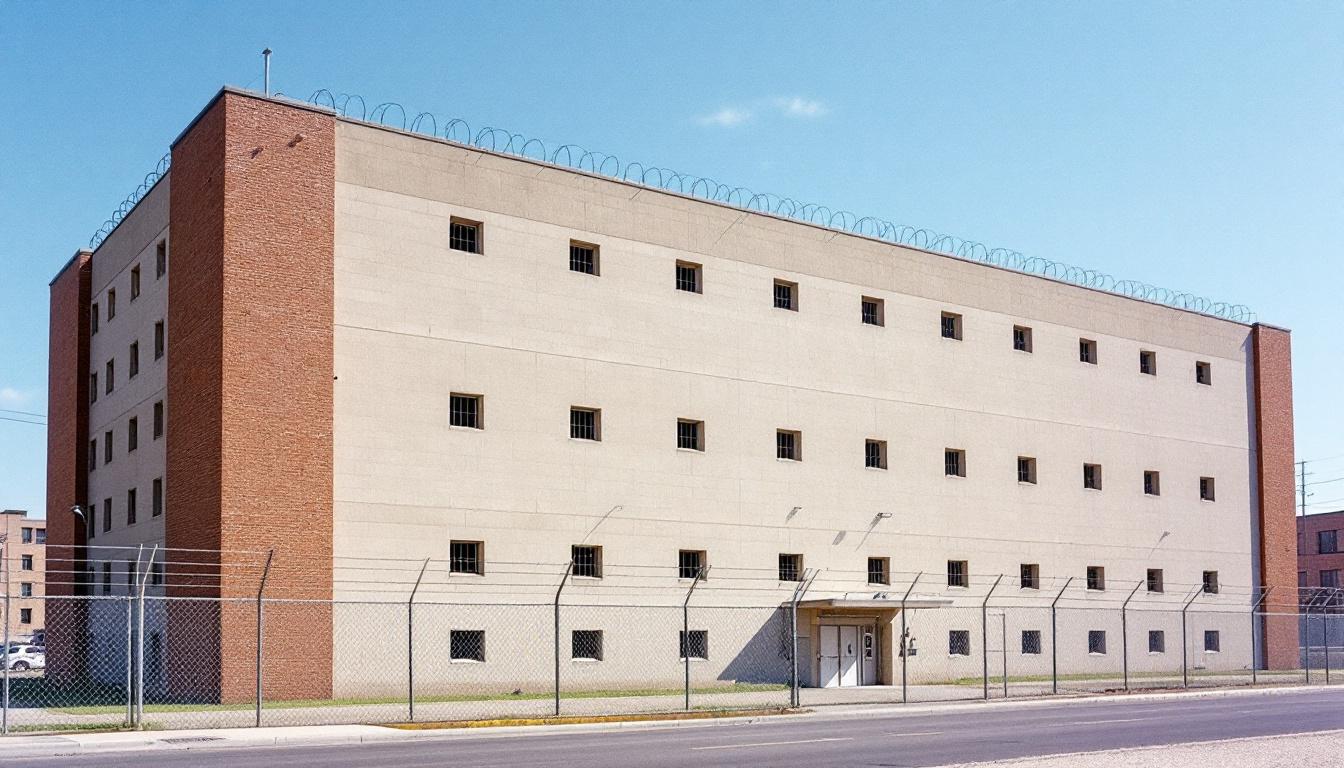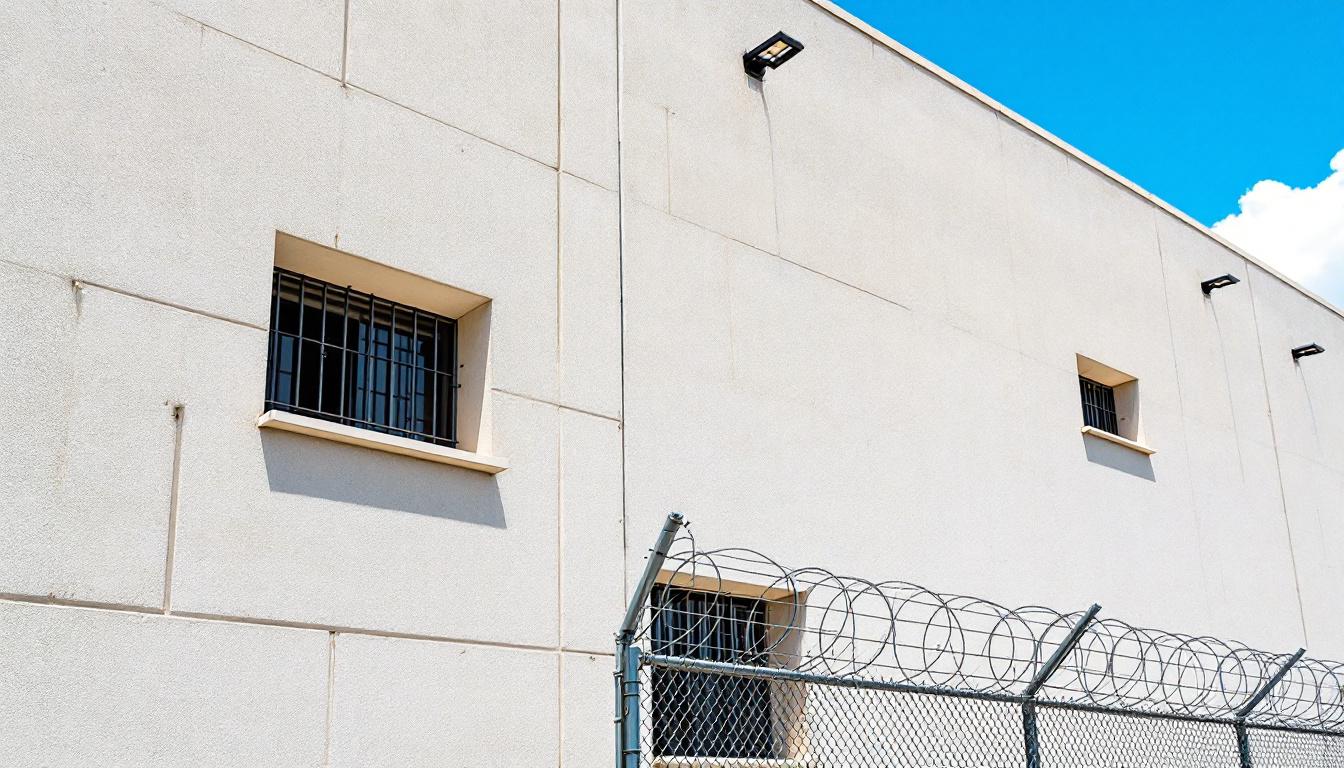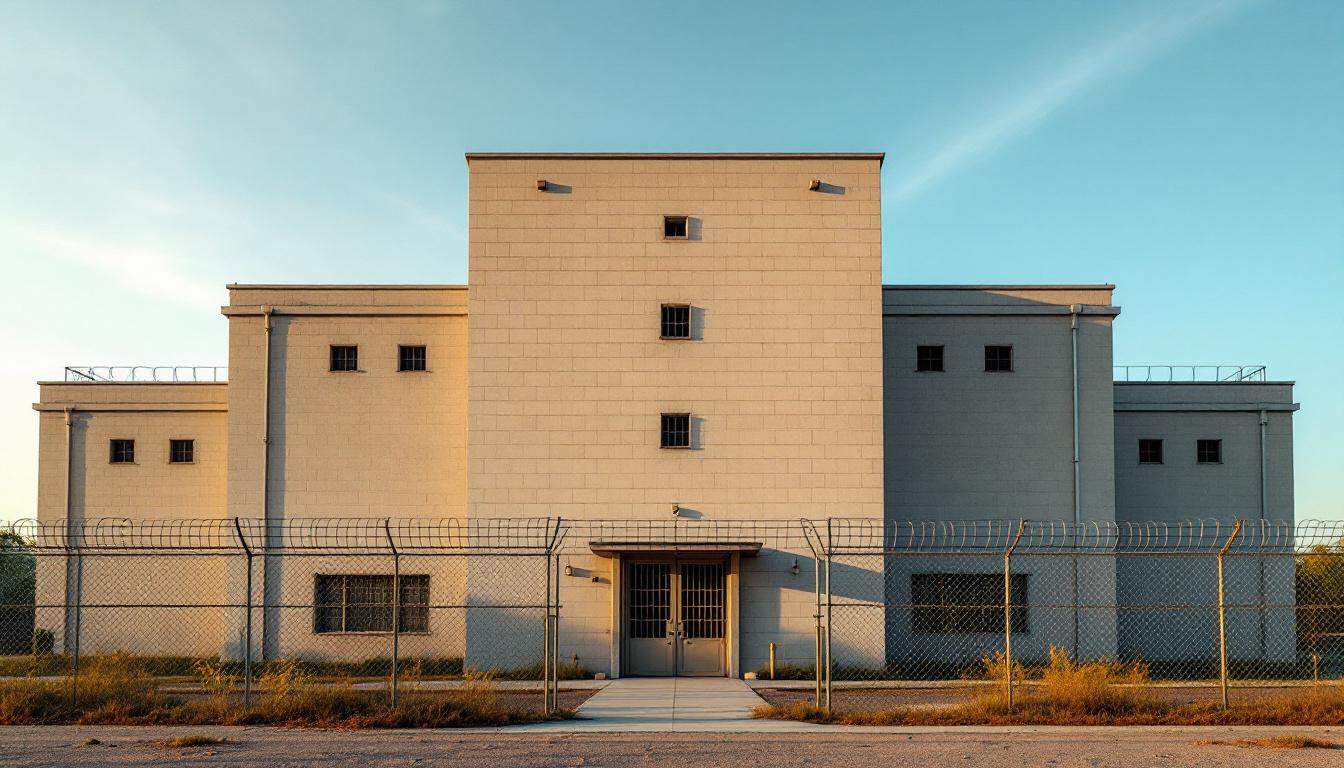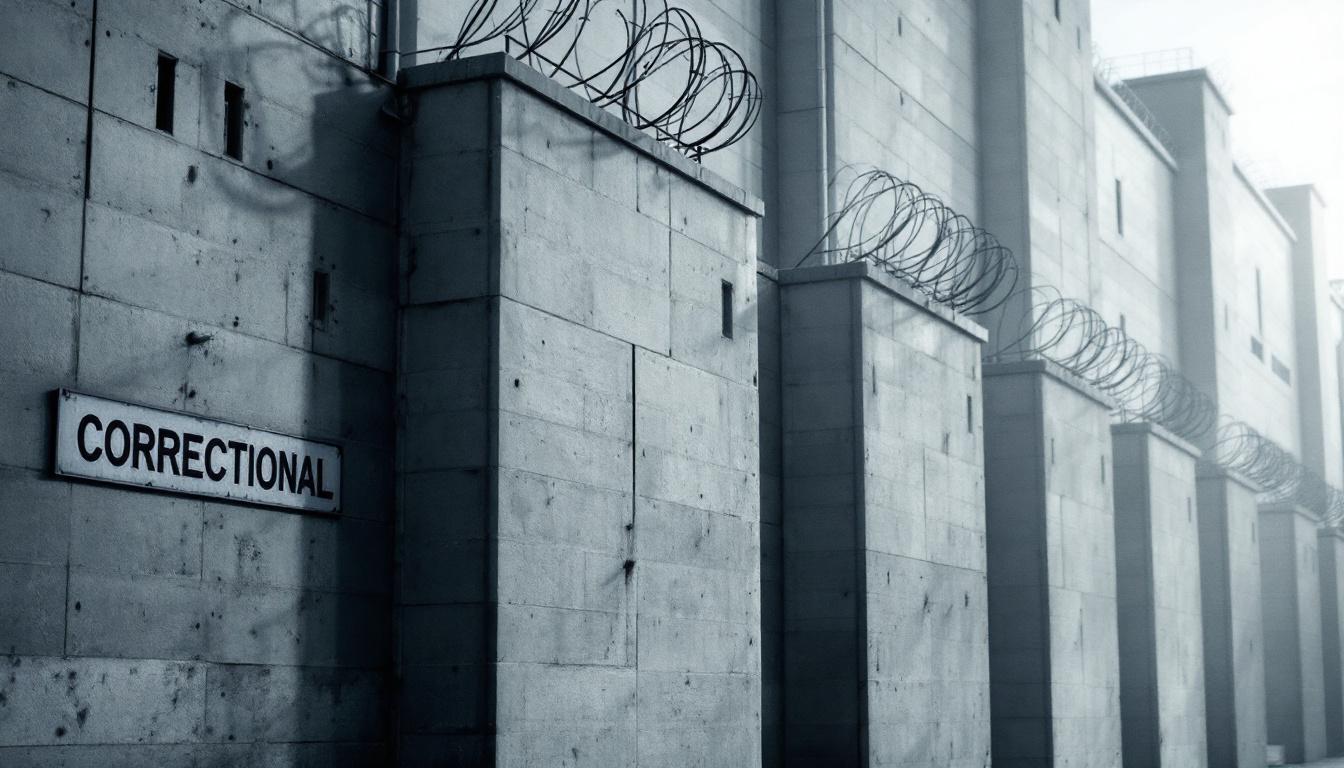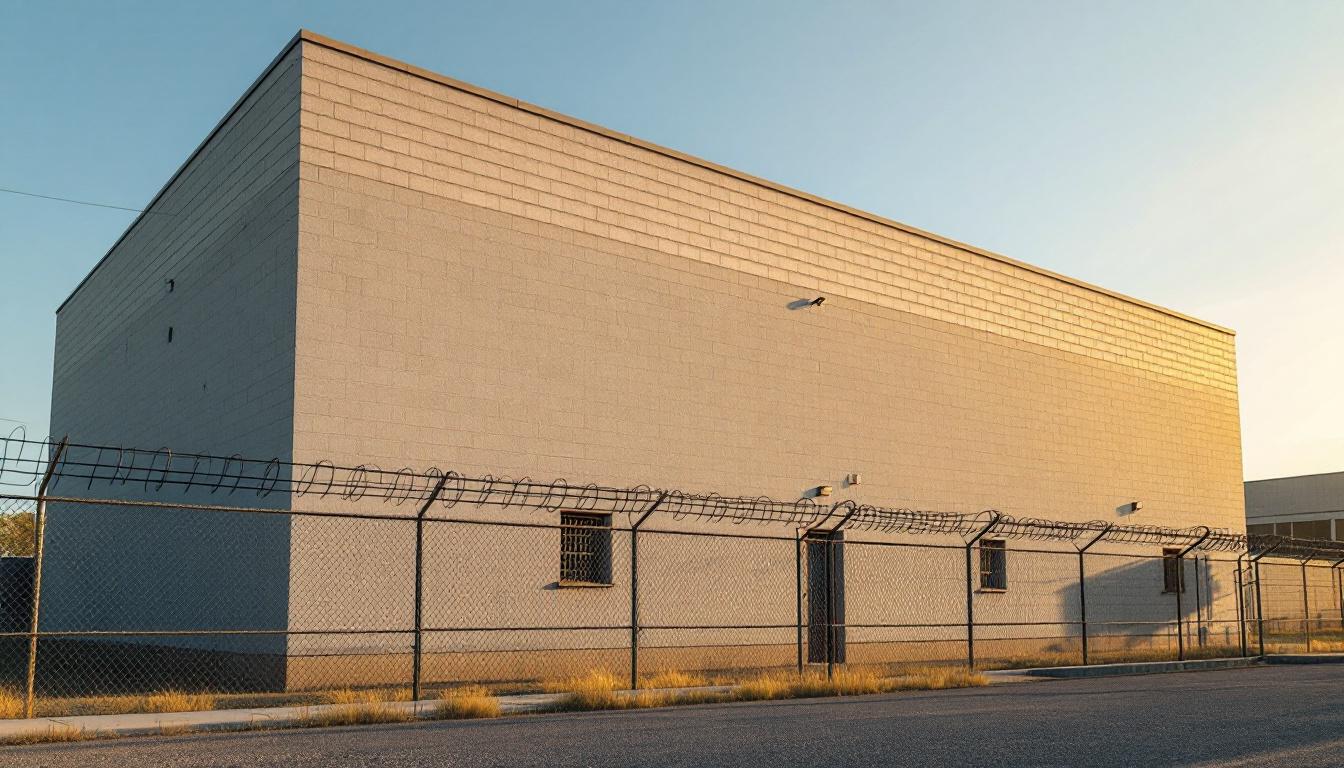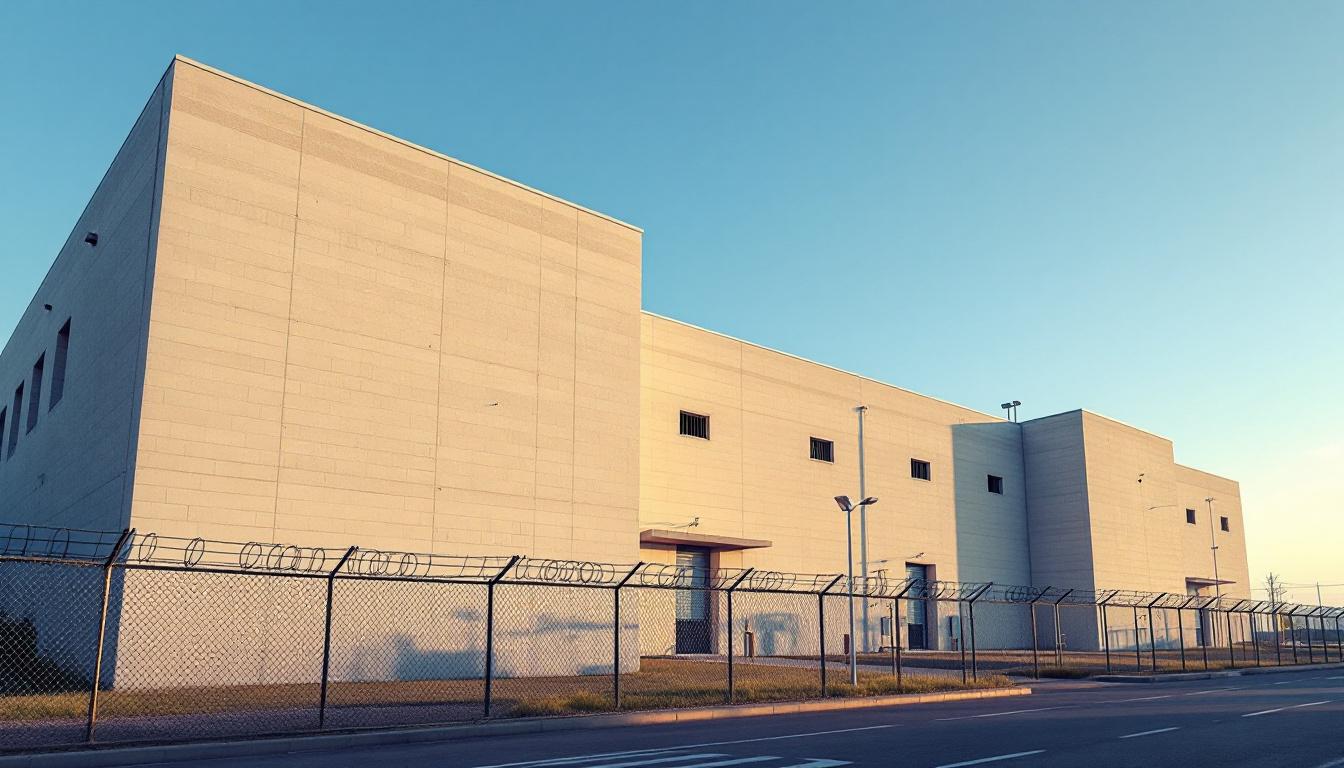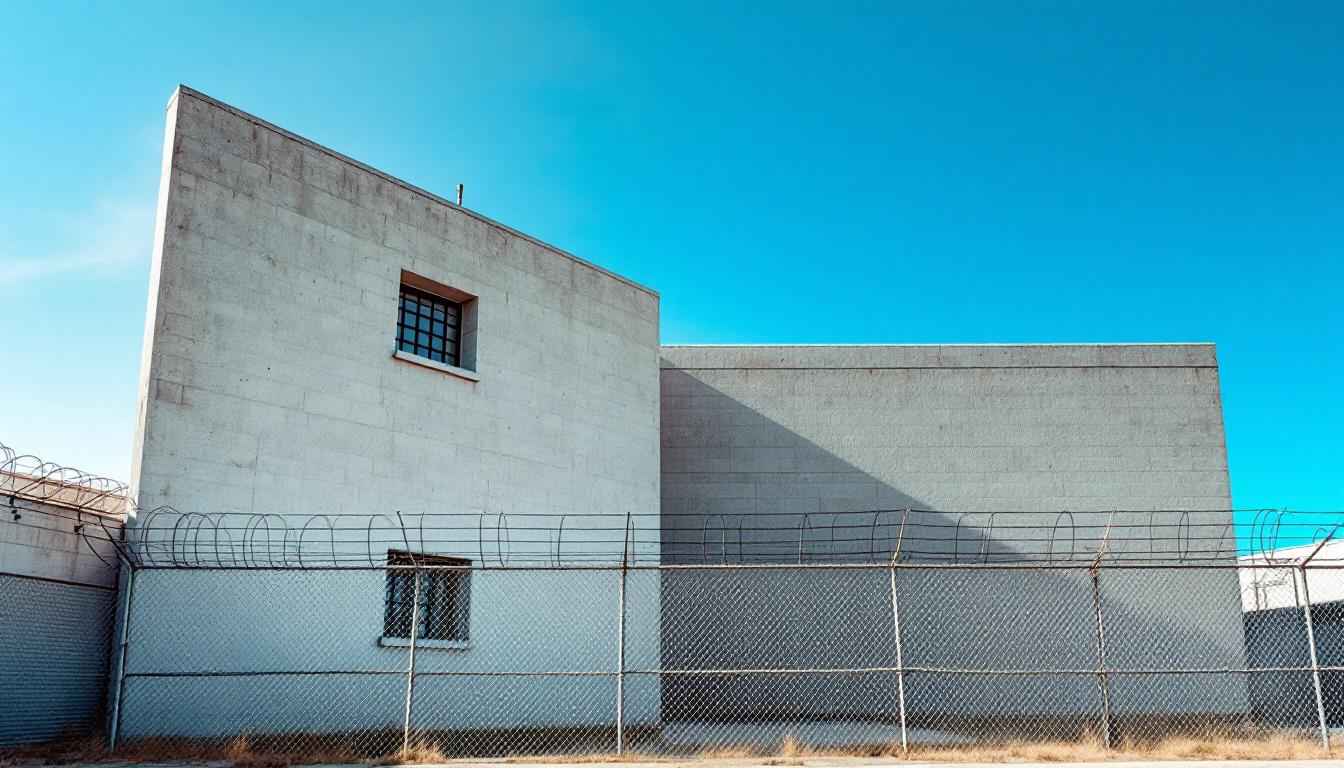
Quick Navigation
How to contact an inmate at Pueblo County Detention
This comprehensive guide will walk you through how to connect with an inmate at Pueblo County Detention. Follow the steps below to find an inmate and send letters and photos:
- Search for the inmate using our search tool below
- Create your account or log in to Penmate
- Write your message (up to 6,000 characters)
- Send instantly - inmates receive printed copies daily
Find an Inmate
Search for an inmate to start communicating today
Tip: You can search by first name, last name, or inmate ID number
To contact a person at Pueblo County Detention start by searching for the person on the official facility website. Perform a search by following these steps:
- Step 1: Enter their first name and last name into the search form and click "Search"
- Step 2: Locate their inmate record
- Step 3: Write down their Inmate ID and any housing information provided
Important! Be sure to enter the person's full name. Nicknames should not be used.
How to Send Messages to Inmates

You can use your phone or computer to send emails, letters, and photos to an inmate. Messages are sent electronically to inmate tablets or kiosks at the facility. If you would like to send a message, start by searching for an inmate at Pueblo County Detention.
Sending Photos and Postcards

A great way to send love and support to a loved one at Pueblo County Detention is to send photos and postcards. It only takes a few minutes to send photos from your phone and it makes a huge difference. You can also mail postcards with words of support and inspiration, or design your own postcard for special moments like birthdays and holidays.
Important! Be sure not to send any explicit photos or they may not be approved by the facility. You can also use a photo printing app like Penmate to make sure your photos are printed at the correct size (4x6 or 3x5) and are mailed according to the rules and regulations of Pueblo County Detention.
Frequently asked questions about Pueblo County Detention
-
How long does it take to deliver a message?
If you're sending an email message your letter is usually delivered within 24-48 hours. For messages sent via mail you should expect delivery within 3-7 days. All messages will need be approved by Pueblo County Detention.
-
How much does it cost to send a message to Pueblo County Detention?
You can send a message free using your phone or mail a message via USPS for the price of a $0.60 stamp and envelope. You can also purchase credits or e-stamps from services starting at $1.99.
-
What services can I use to contact an inmate at Pueblo County Detention?
Penmate
You can use Penmate to send letters and photos to an inmate from your phone. It's an easy way to stay in touch during your loved one's incarceration. Use the inmate locator to find an inmate's location and contact information, then you can send messages within a few minutes.
Securus messaging
Securus may be another option for communicating with an inmate at Pueblo County Detention. You can create a friends and family account and purchase credits to send messages. All messages will be reviewed and must be approved by the facility.
JPay
Some county jails and state prisons may support sending messages with JPay. You must register an account with the system, find your loved one, and purchase stamps to send messages. For some locations you can also attach photos.
Smart Jail Mail
You may also check if Smart Jail Mail is available at Pueblo County Detention. Smart Jail Mail is operated by Smart Communications and has contracted with some state and county jails. After purchasing credits, your messages and photos are sent to the facility, printed out, and then handed out to your loved one.
-
What is the mailing address of Pueblo County Detention?
Mailing address:
Pueblo County Detention
909 Court St
Pueblo, CO 81003
Phone: (719) 583-6135 -
What are the visiting hours at Pueblo County Detention?
Visiting hours at Pueblo County Detention vary by housing unit and security level. Generally, visits are scheduled on weekends and holidays, with some facilities offering weekday visits. Contact the facility directly at (719) 583-6135 or check their website for the current visiting schedule. Visits typically last 30-60 minutes and must be scheduled in advance.
-
What items are prohibited when sending mail to Pueblo County Detention?
Prohibited items typically include: cash, personal checks, stamps, stickers, glitter, glue, tape, staples, paperclips, polaroid photos, musical or blank greeting cards, hardcover books, magazines with staples, and any items containing metal or electronics. Only send letters on plain white paper with blue or black ink. Photos must be printed on regular photo paper (no Polaroids). Always check with Pueblo County Detention for their specific mail policies.
-
How do I send money to an inmate at Pueblo County Detention?
You can send money to an inmate at Pueblo County Detention through several methods: 1) Online using JPay, Access Corrections, or the facility's approved vendor, 2) Money orders mailed directly to the facility with the inmate's name and ID number, 3) Kiosks located in the facility lobby, or 4) Over the phone using a credit or debit card. Fees vary by method, typically ranging from $2.95 to $11.95 per transaction.
-
Can I schedule a video visit with an inmate at Pueblo County Detention?
Many facilities now offer video visitation as an alternative to in-person visits. At Pueblo County Detention, video visits may be available through services like Penmate, Securus Video Connect, GTL, or ICSolutions. Video visits typically cost $10-20 for 20-30 minutes and must be scheduled in advance. You'll need a computer or smartphone with a camera and reliable internet connection. Contact the facility for their specific video visitation policies and approved vendors.
-
What identification do I need to visit an inmate at Pueblo County Detention?
All visitors must present valid government-issued photo identification such as a driver's license, state ID, passport, or military ID. Minors must be accompanied by a parent or legal guardian who can provide the minor's birth certificate. Some facilities require visitors to be on the inmate's approved visitation list, which may require a background check. Contact Pueblo County Detention for specific ID requirements and visitor approval procedures.
-
How can I find out an inmate's release date?
To find an inmate's release date at Pueblo County Detention, you can: 1) Use the online inmate search tool if available, 2) Call the facility's records department, 3) Contact the inmate's case manager or counselor, or 4) Have the inmate provide this information during a call or visit. For privacy reasons, some facilities only release this information to immediate family members.
Facility Overview
Official Website
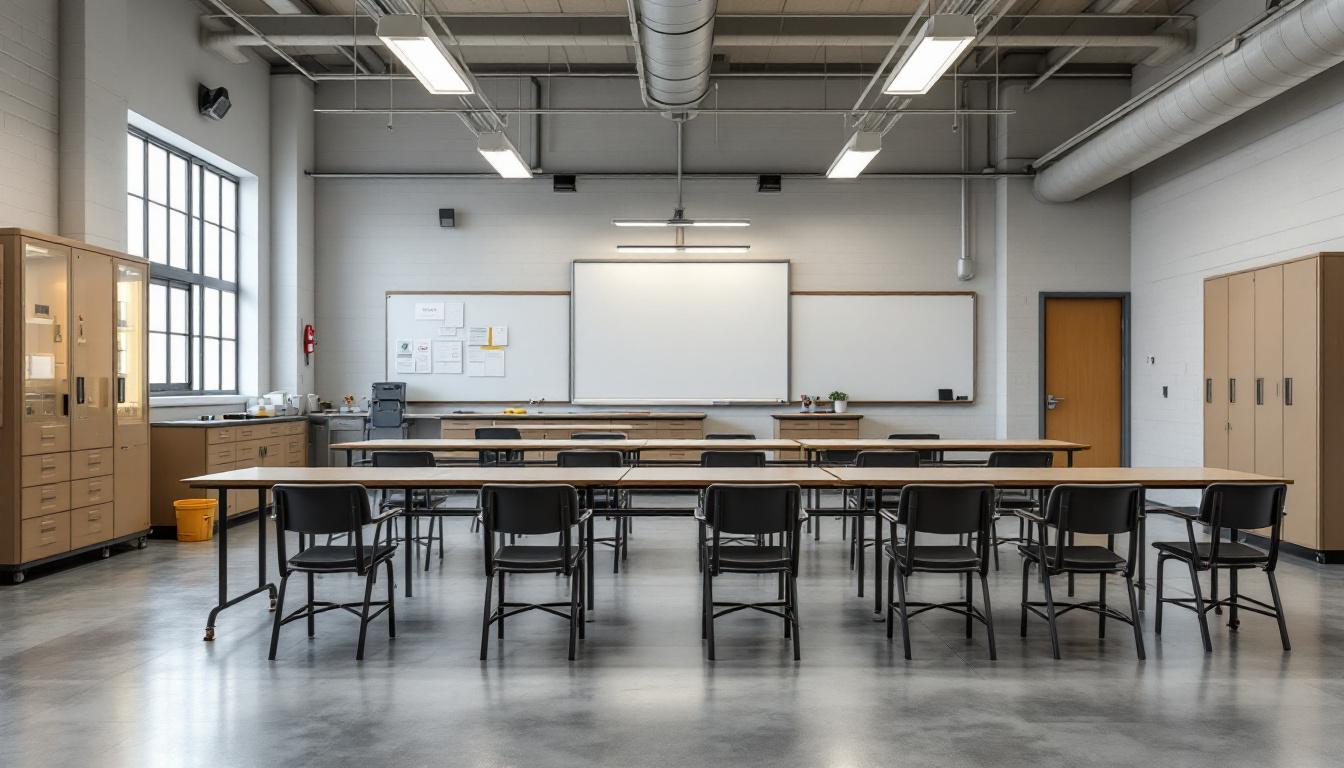
About Pueblo County Detention
Community partnerships and comprehensive support services form the foundation of what Pueblo County Detention, CO offers to individuals navigating the correctional system in Phoenix, Colorado. This detention center typically provides essential programs focused on rehabilitation and reintegration, working alongside local organizations to address the diverse needs of those in custody. The facility generally emphasizes connecting individuals with educational opportunities, substance abuse counseling, and job readiness training that may help prepare them for successful community reentry.
Situated within the mountain region’s correctional landscape, this CO correctional facility has historically served as an important component of the state’s detention system, adapting its approach over time to better serve both the incarcerated population and the broader Phoenix community. The center’s commitment to individuals services often includes mental health support, basic education programs, and life skills development initiatives that reflect evolving effective practices in corrections. These efforts typically involve collaboration with community-based organizations, faith groups, and educational institutions that understand the comprehensive challenges faced by residents transitioning back into society.
The detention center’s service-oriented philosophy generally extends beyond traditional custody functions to encompass programs that may address underlying issues contributing to criminal behavior. Through partnerships with local service providers, the facility often works to ensure continuity of care and support that begins during incarceration and continues after release, recognizing that successful reintegration benefits both individuals and the Phoenix community as a whole.
Programs & Services
Through a multifaceted approach to personal development, individuals at Pueblo County Detention typically encounter an extensive array of opportunities designed to address diverse aspects of rehabilitation and growth. The facility’s comprehensive programming philosophy recognizes that meaningful change requires addressing educational deficits, developing practical skills, and fostering emotional well-being through structured interventions. This holistic framework creates pathways for individuals to engage in transformative experiences that extend far beyond basic incarceration, establishing foundations for successful community reintegration.
Educational advancement forms a cornerstone of the facility’s offerings, with literacy programs often providing fundamental reading and writing skills to those who may have previously lacked such opportunities. These foundational efforts typically expand into broader education programs that may include GED preparation and basic academic coursework designed to bridge educational gaps. Also available through vocational training initiatives, individuals can develop marketable skills in various trades and technical fields, creating tangible employment prospects that serve as crucial stepping stones toward economic stability upon release.
The therapeutic dimension of programming encompasses sophisticated behavioral interventions, including cognitive behavioral therapy opportunities that help individuals examine and modify problematic thought patterns and behaviors. Therapeutic communities may provide structured environments where participants engage in peer support and accountability processes, fostering personal responsibility and interpersonal growth. Also emphasized through specialized curricula, communication skills and decision making skills development enable individuals to navigate complex social situations and make informed choices that support long-term success in their personal and professional lives.
Daily Life & Visitation
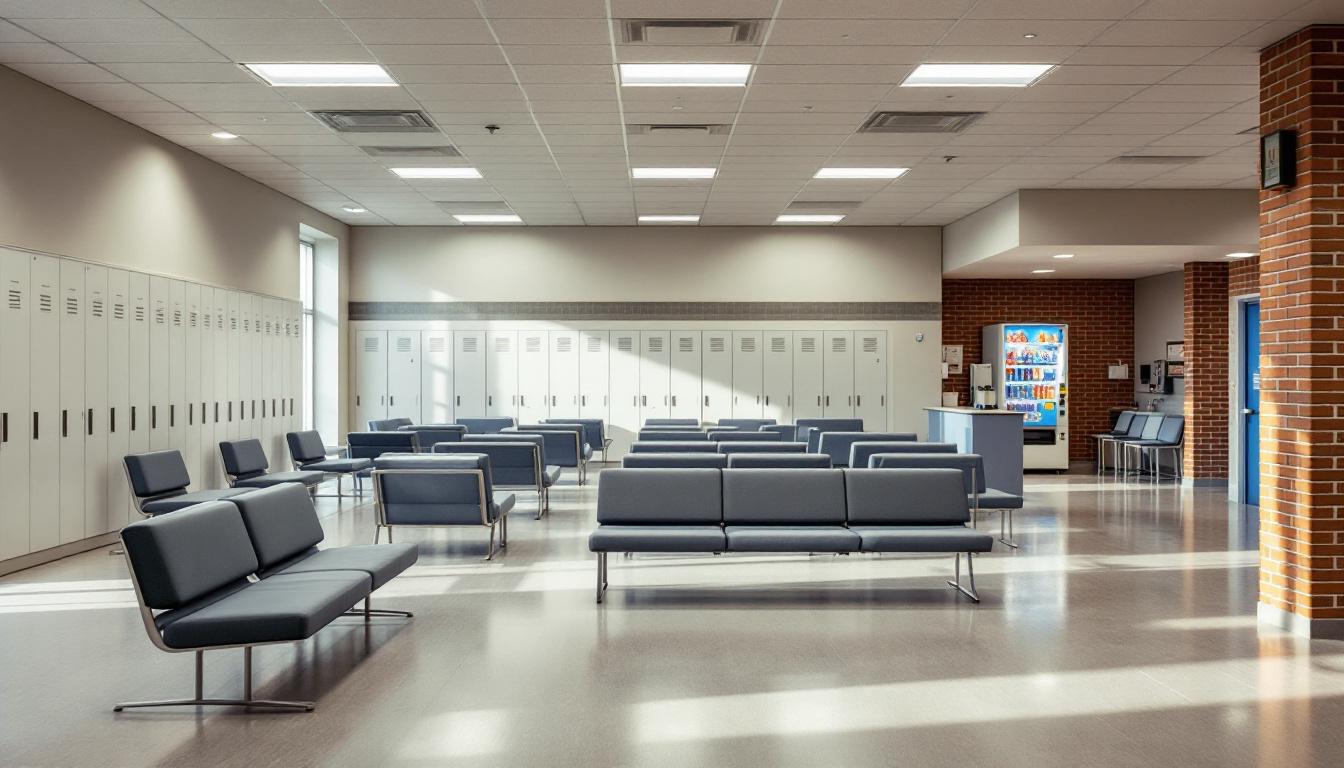
The sound of breakfast trays being distributed typically marks the beginning of another structured day for individuals housed within the facility’s walls, where routines are designed to provide both security and stability. At present, individuals actively participate in a daily schedule that generally begins in the early morning hours with wake-up calls, followed by meals served at designated times throughout the day. The facility typically operates on a consistent routine that includes scheduled counts, where individuals must be present and accounted for in their assigned housing areas, along with designated periods for recreation, programming, and personal time.
Living accommodations within the facility generally consist of housing units that may vary in configuration, with individuals typically assigned to cells or dormitory-style arrangements depending on classification levels and available space. The housing areas usually include basic furnishings such as beds, storage areas for personal property, and shared bathroom facilities. Also, individuals often have access to common areas within their housing units where they may gather during designated free time periods, though movement throughout the facility is generally controlled and supervised by correctional staff.
However, daily life extends beyond basic housing and meals to include various programming opportunities that offer structure and potential skill development. Individuals may participate in work assignments within the facility, which could include kitchen duties, maintenance tasks, or cleaning responsibilities, often providing a sense of purpose and routine. The facility typically offers recreational activities such as television viewing, reading materials, and exercise opportunities, though access may depend on behavior and classification status. Also, family connections remain important through visitation programs and telephone privileges, which usually operate under specific scheduling guidelines and security protocols, allowing individuals to maintain contact with their support systems while serving their time.
Ready to Connect?
Start communicating with your loved one today
Search for an Inmate
